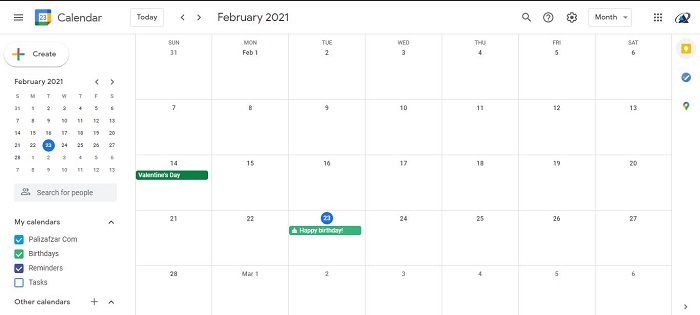How to run a workday?
Time management in the workplace is a real challenge. Distractions, disruptions, emails, meetings, deadlines, requests, and priorities ... the list of things you have to manage can easily become overwhelming, and you're not alone. Plenty of people around you will be paddling, desperately trying to keep their heads above the productivity waterline. For those that don't? Stress, pressure and a sense of overwhelm is the all too familiar outcome. But there's the good news. Improving your time management at work isn't nearly as hard as you might think, and the gains can be huge.
Three crucial yardsticks can be used to define successful time management in the workplace:
- Productivity: how much you do
- Performance: how well you do what matters
- Perception: how you and others feel about what you do
Whatever your reasons for doing what you do, better time management at work means you continually strive to improve your effectiveness and your efficiency, both of which are important to how you manage your career. The outcomes are worth the time and effort it takes to learn a few basic tips and techniques.
Time Management Solutions at Work

Plan ahead
One of the worst things that you can do is wake-up without a plan for the day. Instead of focusing on what needs to be done, you wander aimlessly and take care of more trivial matters. That’s why you should always plan ahead of using one of these options:
- The night before. Before you leave work for the day, spend the last 15-minutes organizing your office and composing a list of your most important items for tomorrow.
- First thing in the morning. During your morning routine write down the 3 or 4 most urgent and important matters that need to be addressed today and work on those when you’re most productive.
Complete most important tasks first
This is the golden rule of time management. Each day, identify the two or three tasks that are the most crucial to complete, and do those first. Once you’re done, the day has already been a success. You can move on to other things, or you can let them wait until tomorrow. You’ve finished the essential. Close out all other browser windows. Put your phone away, out of sight and on silent. Find a quiet place to work.
Batch related tasks together
Imagine that over a given weekend you need to do two programming assignments, write three essays, and make two videos. Rather than approaching this work in whatever order you feel, group the like tasks and do them consecutively. Different tasks demand different types of thinking, so it makes sense to allow your mind to continue to flow with its current zone rather than switching unnecessarily to something that’s going to require you to re-orient.
Create organizing systems
Being organized saves tons of time. Systems aren’t complicated to implement. Create a filing system for documents. Make sure all your data, even your entrance and exit times are registered in correctly. you can use biometric time and attendance devices along with time attendance software.
Use an online calendar
Calendars have long been a fundamental tool for time management. However, online calendars have taken this to the next level. That’s because you can access it from multiple devices, easily schedule meetings and appointments, set up reminders, create time blocks, and schedule recurring events.

Make a to-do-list
All goals and projects are made up of smaller parts that need to be accomplished in order to achieve the goal, or complete the project. Create to-do lists for each goal and project, listing all the measurable steps that need to be accomplished. Aside from keeping you focused, this also motivates you as you are able to see what you have already achieved, and what remains. At the same time, there will interruptions that may prevent you from completing a task.
Learn to say “No”
I know that you don’t want to upset anyone. Making a lot of time commitments can teach us how to juggle various engagements and manage our time. This can be a great thing. Your objective should be to take on only those commitments that you know you have time for and that you truly care about. If you already have a list to do, you can helping your colleagues on a project when you have the spare time.
Leave a buffer-time between tasks and meetings
Jumping immediately from one task or meeting to the next may seem like a good use of your time, but it actually has the opposite effect. We need time to clear our minds and recharge by going for a walk, meditating, or just daydreaming. After all, the human brain can only focus for about 90-minutes at a time. Without that break, it’s more difficult to stay focused and motivated.
Stop being perfectionist
We often allow projects to take much, much longer than they could by getting too hung up on small details. When you’re a perfectionist, nothing will ever be good enough. That means you’ll keep going back to same task over and over again. So, stop being perfect. It doesn’t exist. Do the best you can and move on.
Delineate a time limit in which to complete task
Instead of just sitting down to work on a project and thinking, “I’m going to be here until this is done,” try thinking, “I’m going to work on this for three hours.” The time constraint will push you to focus and be more efficient, even if you end up having to go back and add a bit more time.
Instill keystone habits
Charles Duhigg, author of "The Power of Habit," coined the term "keystone habits." Simply put, they’re habits that can transform your life, such as exercising, tracking what you eat, developing daily routines, and meditating. These habits replace bad habits and solicit other good habits. As a result, you’ll be healthier, more focused, and better suited to manage your time.
Advantages of Schedule and Time Management

There are many advantages that come along with proper management of time. In your professional life, time management can benefit you in the following ways:
Improved quality of life
Effective time management skills don’t just benefit your professional life but can also improve your life outside of the office. If you keep things under control on the professional front, you get more time to focus on your personal life and relationships. Knowing the fact that tasks and activities are on track will bring a sense of calmness in your personal life. As you feel calmer and less stressed out, your quality of life improves automatically.
More opportunities and career growth
Being punctual with your work will not only increase your effectiveness but will also help you earn a good reputation at work. When managers know that you always complete your tasks on time, it could lead the way for more promotional opportunities at work.
Deliver work on time
Allocating a finite time period to tasks help you complete them on time. It also helps you to manage your workload in the most effective way. When you have time-boxed tasks, your brain gets rewired to follow the structure and accomplish those activities within the desired time-frame. Thus, you can easily deliver work on time if you have managed your time well.
Provide a better quality of work
As a dedicated employee, you are expected to provide work of certain quality and standards. With proper utilization of time and prioritization of activities, one can easily provide a better quality of work. Prioritization helps you focus on important tasks by keeping them in the highest priority which enables you to work on them with full attention and focus. Hence, quality of work is improved always.
Less stress and anxiety
There are times when employees feel overwhelmed due to too much work on their plates. This can not only hamper your productivity but also take a toll on your overall health. Excessive stress and hypertension can lead to heart diseases, depression, obesity and more. Knowing what to do when can reduce unnecessary stress and tensions from your life.
These skills are helpful in helping you finish tasks as early as possible without compromising on the quality of work. Your overall productivity often goes for a toss when you’re working on unimportant tasks but effective time management skills let you tick off tasks that are both important and urgent on time.
Related posts




































































